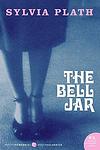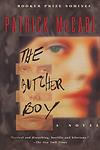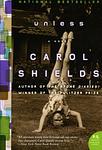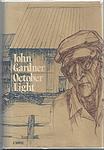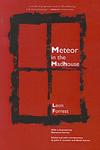The Greatest "Mentally ill" Books of All Time
Click to learn how this list is calculated.
This list represents a comprehensive and trusted collection of the greatest books. Developed through a specialized algorithm, it brings together 284 'best of' book lists to form a definitive guide to the world's most acclaimed books. For those interested in how these books are chosen, additional details can be found on the rankings page.
Genres
The "Mentally ill" category of books refers to literature that explores the experiences and challenges of individuals who struggle with mental health issues. These books may delve into topics such as depression, anxiety, bipolar disorder, schizophrenia, and other conditions, offering insight into the complexities of living with mental illness. Through personal narratives, fictional stories, and educational resources, this category aims to increase awareness and understanding of mental health while providing support and empathy for those who may be struggling.
Countries
Date Range
Reading Statistics
Click the button below to see how many of these books you've read!
Download
If you're interested in downloading this list as a CSV file for use in a spreadsheet application, you can easily do so by clicking the button below. Please note that to ensure a manageable file size and faster download, the CSV will include details for only the first 500 books.
Download-
1. Moby Dick by Herman Melville
The novel is a detailed narrative of a vengeful sea captain's obsessive quest to hunt down a giant white sperm whale that bit off his leg. The captain's relentless pursuit, despite the warnings and concerns of his crew, leads them on a dangerous journey across the seas. The story is a complex exploration of good and evil, obsession, and the nature of reality, filled with rich descriptions of whaling and the sea.
-
2. Invisible Man by Ralph Ellison
The novel is a poignant exploration of a young African-American man's journey through life, where he grapples with issues of race, identity, and individuality in mid-20th-century America. The protagonist, who remains unnamed throughout the story, considers himself socially invisible due to his race. The narrative follows his experiences from the South to the North, from being a student to a worker, and his involvement in the Brotherhood, a political organization. The book is a profound critique of societal norms and racial prejudice, highlighting the protagonist's struggle to assert his identity in a world that refuses to see him.
-
3. The Bell Jar by Sylvia Plath
The novel follows the story of a young woman who wins a guest editorship at a magazine in New York City and, after a series of personal and professional disappointments, suffers a mental breakdown and returns to her family, where she continues to struggle with depression and suicidal thoughts. The protagonist's experiences in psychiatric institutions and her attempts to reclaim her life are depicted with brutal honesty, making it a poignant exploration of mental illness and the societal pressures faced by women in the mid-20th century.
-
4. One Flew Over the Cuckoo's Nest by Ken Kesey
Set in a psychiatric hospital in Oregon, the novel is narrated by a half-Native American patient known as Chief Bromden, who pretends to be deaf and mute. The story follows the arrival of a new patient, a boisterous, rebellious man who challenges the oppressive and dehumanizing system of the hospital, particularly the tyrannical Nurse Ratched. The book explores themes of individuality, rebellion, and the misuse of power, ultimately leading to a tragic conclusion.
-
5. The Woman in White by Wilkie Collins
A captivating tale of mystery and suspense, "The Woman in White" follows the story of a young art teacher, Walter Hartright, who encounters a mysterious woman dressed in white on a moonlit road. The woman is revealed to be a mental asylum escapee, and as Hartright delves into her story, he uncovers a web of deceit, madness, and dangerous secrets involving a wealthy, titled family. The narrative explores themes of identity, insanity, and the abuse of power, with a complex plot filled with twists and turns.
-
6. The Man Who Mistook His Wife for a Hat by Oliver Sacks
The book is a collection of clinical tales about patients suffering from a variety of neurological disorders. The author, a neurologist, shares his experiences with these patients, whose conditions range from common ailments like amnesia and aphasia, to rare disorders like visual agnosia and Tourette's Syndrome. The stories are both compassionate and insightful, revealing the complexities of the human brain and the resilience of the human spirit, even in the face of debilitating illness.
-
7. The Butcher Boy by Patrick McCabe
The Butcher Boy is a dark and disturbing tale set in small-town Ireland, following the life of a troubled young boy who descends into madness and violence. The protagonist's life is filled with neglect, abuse and mental health issues, and his increasingly erratic behavior and gruesome fantasies lead him down a path of horrific actions. The novel provides a stark exploration of the effects of societal neglect and the failure of mental health systems.
-
8. The Invisible Man by H. G. Wells
The book is a gripping science fiction tale about a scientist who discovers a way to make himself invisible. However, the inability to reverse the process leads him into madness and terror. The narrative explores themes of alienation, social responsibility, and the moral implications of scientific advancement. The invisible man's struggle with his condition and society's reaction to his invisibility serve as a critique of humanity's fear and misunderstanding of the unknown.
-
9. Unless by Carol Shields
The novel is a narrative about a middle-aged, successful writer who is grappling with the sudden and inexplicable decision of her eldest daughter to drop out of college and live on the streets. The daughter communicates only one word, "Goodness", which she writes on a cardboard sign. The story explores the protagonist's struggle to understand her daughter's choice, while also delving into themes of feminism, the nature of goodness, and the power of words.
-
10. Affliction by Russell Banks
"Affliction" is a powerful and haunting novel about a man named Wade Whitehouse, a small-town cop in New Hampshire, who descends into a spiral of violence and despair triggered by the fear of his own impotence. The narrative delves deep into Wade's past and present life, his struggles with alcoholism, his failed marriage and difficult relationship with his daughter, and his abusive father, all leading to a tragic and shocking climax. The book is a profound exploration of the struggle for self and identity in a harsh and unforgiving environment.
-
11. October Light by John Gardner
"October Light" is a story set in Vermont, revolving around an elderly brother and sister, James and Sally, who have lived together for decades but have a strained relationship due to their differing views. When James locks Sally in her room after an argument, she finds a novel within a novel, which becomes her only escape. The book explores themes of aging, isolation, and the clash of old and new values, all the while providing a commentary on the changing American society of the 1970s.
-
12. Meteor In The Madhouse by Leon Forrest
"Meteor in the Madhouse" is a posthumously published collection of interconnected novellas that delve into the complexities of African American life and identity. The narrative weaves through the experiences of various characters, primarily focusing on the protagonist's reflections on his life, his relationships with others, and his quest for understanding amidst the chaos of the world around him. The book explores themes of memory, history, and the interplay of reality and fiction, all set against the backdrop of the civil rights movement and the rich cultural tapestry of African American heritage. Through lyrical prose and a non-linear structure, the work challenges readers to contemplate the nature of storytelling and the power of the human spirit to endure and make sense of life's tumultuous journey.
-
13. The Bird of Night by Susan Hill
"The Bird of Night" is a historical novel that explores the life of a brilliant, but mentally unstable poet named Francis Croft in 20th-century England. Told through the perspective of his friend and caretaker, Harvey, the book delves into the complexities of their relationship, the struggles of mental illness, and the cost of genius. As Francis' condition deteriorates, Harvey is left to grapple with the moral and emotional toll of caring for a troubled genius. The novel is a poignant exploration of love, friendship, sacrifice, and the destructive power of mental illness.
Reading Statistics
Click the button below to see how many of these books you've read!
Download
If you're interested in downloading this list as a CSV file for use in a spreadsheet application, you can easily do so by clicking the button below. Please note that to ensure a manageable file size and faster download, the CSV will include details for only the first 500 books.
Download

